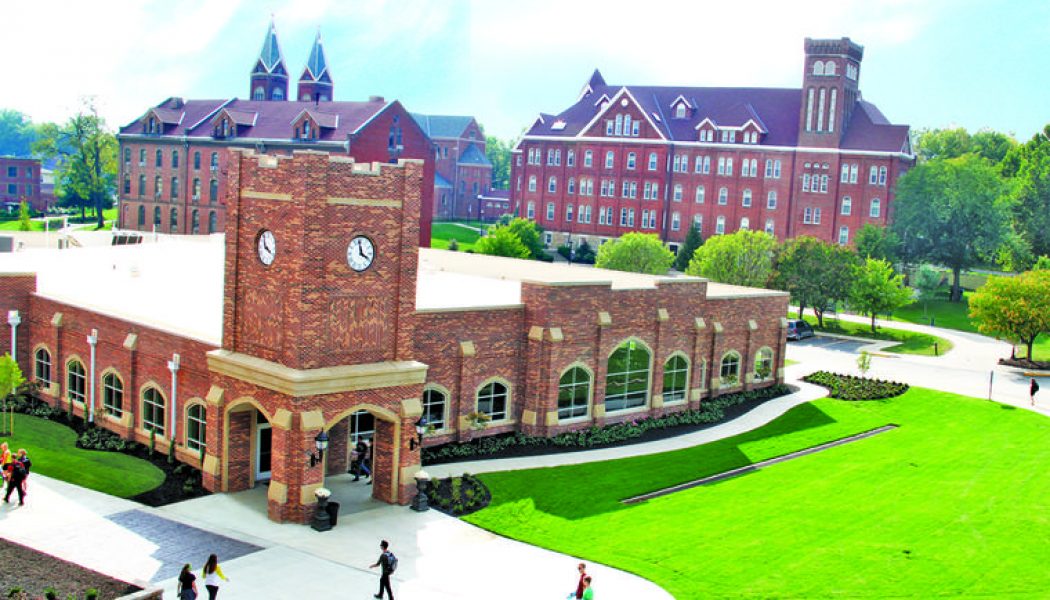
Catholic colleges would do well to emulate Benedictine’s approach to promoting virtue, healing and forgiveness.
Students at The Catholic University of America in Washington, D.C., made national headlines in 2019, when they petitioned the university to block pornographic websites on the campus Wi-Fi network. The university administration readily agreed, joining the growing number of faithful Catholic colleges that realize just how damaging pornography use is for students and therefore block pornography on their campus networks.
But in the past year, the social isolation wrought by the COVID-19 pandemic has only solidified the place pornography websites hold as among the most trafficked in the world, reminding even the most devout Catholic institutions that this evil is more rampant now than it has ever been.
A thousand miles to the west of D.C., at Benedictine College in Atchison, Kansas, administrators have embraced a much broader approach to tackling this crisis of health and virtue, driven by the knowledge that “personnel is policy.” Instead of simply blocking websites, the college has developed a multi-pronged approach to tackling the issue, providing a model for other Catholic institutions to follow.
In an ever-changing digital and social media landscape, leaders at Benedictine understand that the social and personal ills from pornography consumption will never be fully quashed, especially since most students have been exposed or addicted prior to attending college. Benedictine has developed a robust support system designed to help students struggling with pornography and sex addiction, while also encouraging healthy social behaviors that limit the opportunities to slip into temptation.
And while these policies have been effective and have proved immensely beneficial to the student body, Benedictine’s dean of student life, Joseph Wurtz, says they would be nothing without the right staff implementing them.
“Having the right people who can interpret … policies and create the right culture is critically important to maintaining the Catholic identity of an institution,” Wurtz said. “This does not diminish the need for sound policy. As administrators committed to Catholic identity, we should have clear and unambiguous polices that support the Church’s teachings — intellectual, moral and social.”
The “hiring and promotion of personnel who ‘strive to live a life of virtue guided by the teachings of the Catholic Church’ must be one of the highest institutional priorities,” Wurtz said, citing The Cardinal Newman Society’s recommended Human Sexuality Policies. “Culture is most effectively transmitted by people. To the degree Catholic institutions can attract personnel who themselves are committed to creating a strong Catholic culture, and model it joyfully, then good policy can be generated and successfully implemented.”
The Newman Society last year highlighted the efforts of Benedictine College and other faithful Catholic colleges in a report that offered a blueprint for combatting pornography on campus. For Benedictine, the effort began two years ago with a committee of religious leaders, campus staff and counselors who were tasked with establishing a strategy to combat pornography use among the student body.
Benedictine’s approach follows extensive research showing that, in order to overcome addiction and dependency, students greatly benefit from group therapy, an accountability partner and counseling.
Benedictine has both a male and a female counselor trained in pornography and sex addiction at the campus counseling center. It hosts a presentation on the topic at least once a semester, and single-sex group therapy is available, with tailored approaches to men and women.
Encouraging healthy and chaste behaviors, establishing an emotional and spiritual support system, and developing healing programs are all essential tools in the fight against pornography addiction in a world that promotes it. Benedictine College’s embrace of these tools — in addition to regular access to the sacraments, especially confession — has yielded positive results.
Catholic colleges would do well to emulate Benedictine’s approach to promoting virtue, healing and forgiveness. It is precisely this sort of Christian communion that Catholic families seek in authentic Catholic education.
Join Our Telegram Group : Salvation & Prosperity









